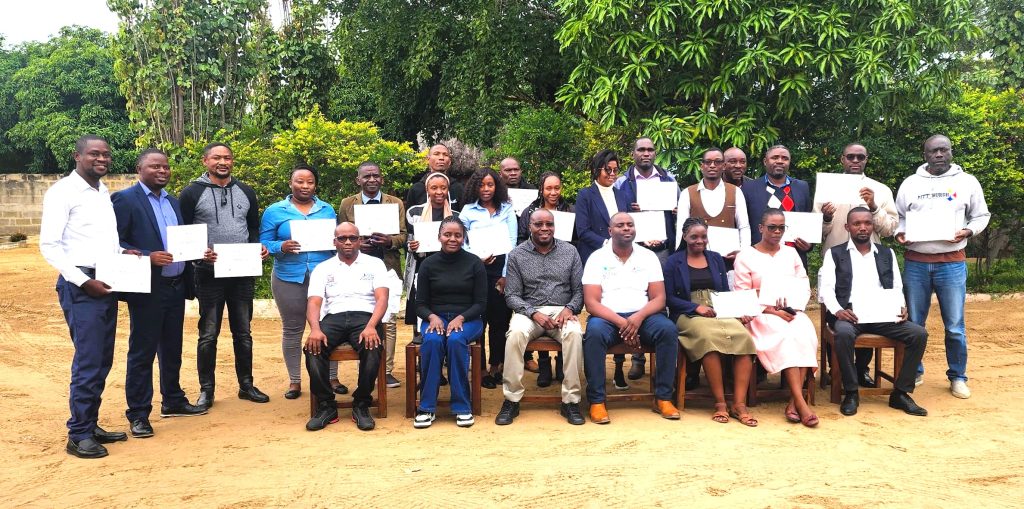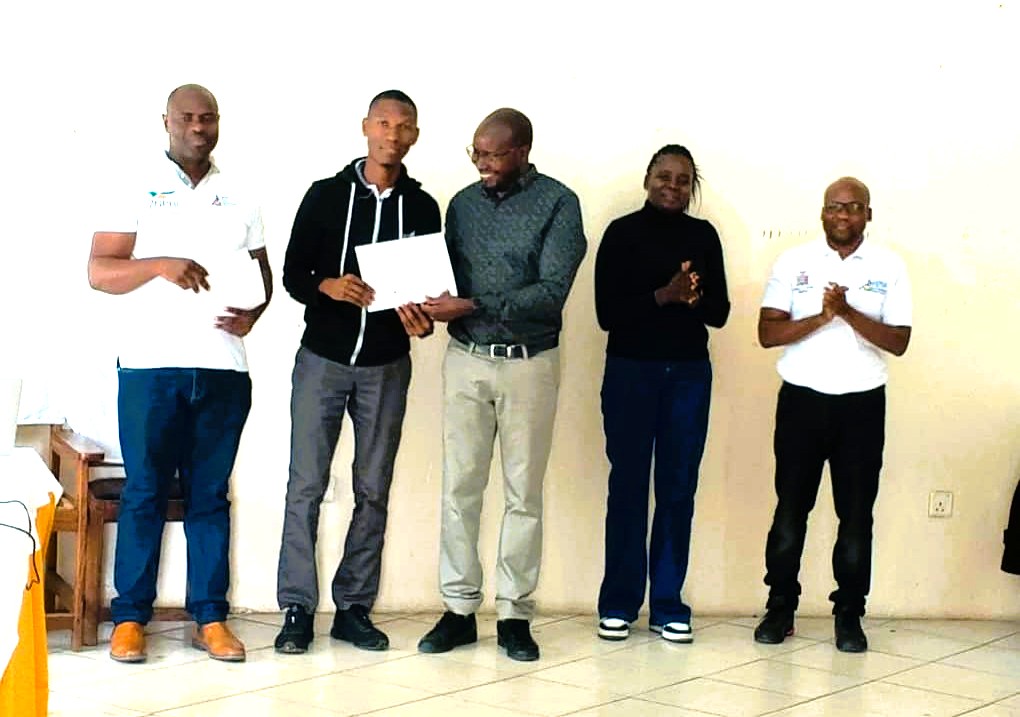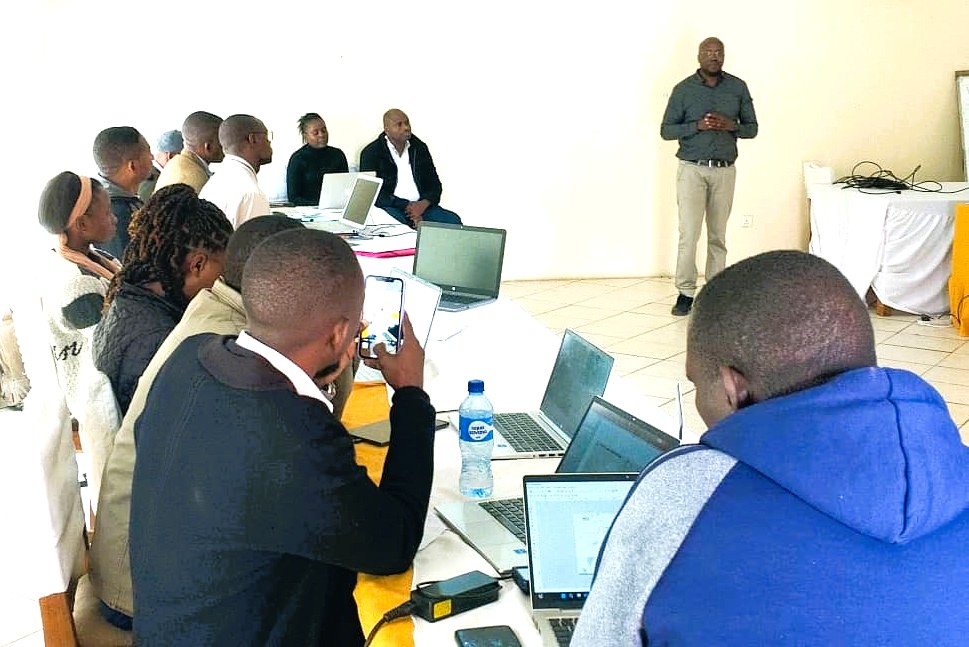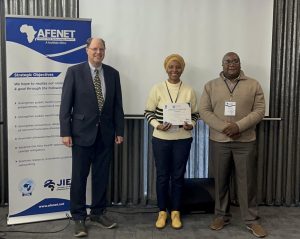Zambia expands health security workforce with FETP frontline graduation
-
by
AFENET

Senanga, Zambia | 13 June 2025 — The Zambia National Public Health Institute (ZNPHI), in partnership with the Ministry of Health (MOH) and the Global Fund, celebrated the graduation of 20 frontline health professionals from the Frontline Field Epidemiology Training Program (FETP) in Western Province. This milestone marks a significant step in strengthening Zambia’s capacity for early detection and rapid response to public health threats.
The ceremony was attended by both national and provincial health leaders, including Dr. Nyambe Sinyange, Director of Workforce Development at ZNPHI, representing the Director General of ZNPHI; Ms. Mwezi Kazakatila, Human Resource Development Officer from the Provincial Health Office (PHO); Mr. Ernest Kateule, FETP Frontline Coordinator; and Mr. Golden Apuleni, Provincial Epidemiologist.
Mr. Kateule commended the dedication of mentors and facilitators, whose tireless efforts have empowered participants with essential field epidemiology skills. “Graduating from the Frontline FETP is more than earning a certificate—it’s laying the foundation for professional growth and advancement in public health,” he said. He urged graduates to continue their learning through the Intermediate and Advanced FETP tiers and to apply their newly acquired competencies to enhance public health response in their communities.
Dr. Sinyange addressed the 26th Cohort of Frontline FETP during the graduation, emphasizing the interdisciplinary strength of the group, which included professionals from public health surveillance, biomedical sciences, and veterinary services. “Your commitment and perseverance are commendable. Today, we recognize not only your graduation but your readiness to serve as vital contributors to Zambia’s public health system,” he noted.
He underscored the role of FETP in developing critical skills at the subnational level, enabling timely identification and containment of public health emergencies. With continued support from partners including the Global Fund, World Bank, and U.S. CDC, ZNPHI remains focused on expanding epidemiologic capacity nationwide.
Dr. Sinyange encouraged graduates to document and publish their field experiences in local, national, and international scientific platforms such as AFENET and TEPHINET, highlighting the importance of knowledge sharing in advancing the field of epidemiology. He also reaffirmed ZNPHI’s commitment to supporting provinces in achieving the goal of training five FETP Frontline graduates per district.
Notably, Dr. Sinyange announced the upcoming rollout of the One Health Frontline curriculum in July 2025. This initiative aims to foster cross-sectoral collaboration in surveillance and response, integrating human, animal, and environmental health systems in line with the One Health approach.
“As you move forward, I wish you every success. You now possess the tools to make a meaningful impact in your communities and the nation. Your role is critical to safeguarding public health and strengthening health security,” he concluded.





